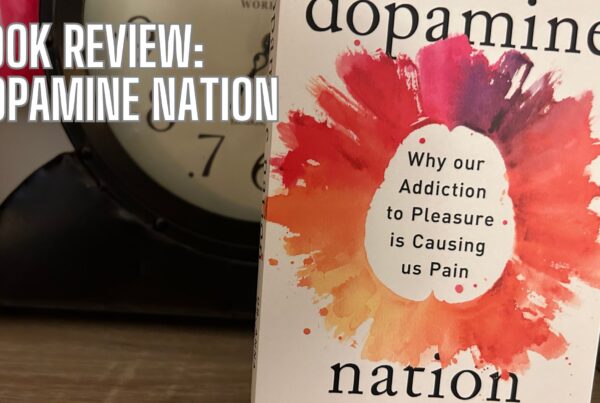How Acceptance and Commitment Therapy (ACT) Can Help With Addiction Issues
ACT With Addiction Issues
Addiction is a tricky beast. It can sneak up on you when you least expect it and take over your life in ways you never thought possible. And once you’re in its clutches, it can be incredibly hard to break free.
That’s where Acceptance and Commitment Therapy (ACT) comes in. ACT is a therapeutic approach that focuses on helping people develop psychological flexibility and live a more meaningful life. And while it wasn’t originally designed specifically for addiction, it has been shown to be incredibly effective in helping people struggling with substance abuse and other addictive behaviors.
Understanding Addiction
Before we dive into how ACT can help with addiction, let’s take a closer look at what addiction actually is. At its core, addiction is a compulsive, out-of-control behavior that continues despite negative consequences. Whether it’s drugs, alcohol, gambling, or something else entirely, addiction can take many forms and affect people from all walks of life.
One of the challenges of addiction is that it often stems from deeper emotional issues. Maybe you’re using drugs to cope with trauma, or gambling to escape from feelings of loneliness or boredom. Whatever the case may be, addiction can quickly become a way to self-medicate and avoid dealing with these underlying problems.
How ACT Can Help
So how can ACT help with addiction? The answer lies in its focus on psychological flexibility and acceptance.
Psychological flexibility is the ability to adapt to changing situations, be present in the moment, and act in accordance with your values. This is in contrast to rigid, inflexible thinking patterns that can keep you stuck in self-destructive behaviors.
In ACT, one of the key skills is mindfulness – the practice of being fully present in the moment, without judgment. This can help you become more aware of your thoughts and feelings, and learn to observe them without getting swept up in them.
Another important aspect of ACT is acceptance. This doesn’t mean giving up or resigning yourself to your addiction – quite the opposite, in fact. Acceptance in ACT means acknowledging your thoughts and feelings, even the difficult ones, without trying to change them or push them away. This can help you develop a greater sense of self-awareness and compassion for yourself, which can be incredibly helpful when it comes to overcoming addiction.
Using ACT in Addiction Treatment
So how does ACT actually work in addiction treatment? Here are a few examples of how ACT principles can be applied:
Developing mindfulness skills: By learning to be more present in the moment and observe your thoughts and feelings without judgment, you can become more aware of your triggers and cravings. This can help you make more conscious decisions about your behavior and develop a greater sense of control over your addiction.
Clarifying values: One of the goals of ACT is to help you identify what’s truly important to you in life. By clarifying your values, you can gain a greater sense of purpose and motivation to overcome your addiction. For example, if you value your relationships with your family and friends, you may be more motivated to seek help for your addiction in order to preserve those relationships.
Taking committed action: Another important aspect of ACT is taking action in accordance with your values. This means setting goals and taking steps to achieve them, even in the face of difficult emotions or setbacks. By taking committed action towards overcoming your addiction, you can build confidence in your ability to change and develop a greater sense of control over your life.
The Benefits of ACT for Addiction
So what are the benefits of using ACT for addiction? Here are a few:
Improved self-awareness: By learning to observe your thoughts and feelings without judgment, you can develop a greater sense of self-awareness. This can help you recognize your triggers and cravings, as well as any underlying emotional issues that may be contributing to your addiction.
Greater sense of control: ACT can help you develop a greater sense of control over your addiction by teaching you how to respond to difficult emotions and urges in a more mindful and intentional way.
Increased motivation: By clarifying your values and goals, you can gain a greater sense of purpose and motivation to overcome your addiction and live a more meaningful life.
Improved relationships: Addiction can take a toll on your relationships with loved ones. By developing greater self-awareness and taking committed action towards your recovery, you can rebuild trust and strengthen your relationships with those around you.
Better coping skills: ACT can help you develop better coping skills to deal with difficult emotions and situations. This can help you avoid turning to addictive behaviors as a way to cope with stress or negative emotions.
The Role of a Therapist
While it’s possible to practice some aspects of ACT on your own, working with a therapist can be incredibly helpful when it comes to addiction treatment. A therapist can help you develop mindfulness skills, clarify your values, and set goals for your recovery. They can also provide support and guidance as you navigate the ups and downs of the recovery process.
In addition, a therapist can help you identify any underlying emotional issues that may be contributing to your addiction, and work with you to develop strategies for coping with these issues in a healthier way.
ACT can be a powerful tool to overcome Addiction
Acceptance and Commitment Therapy (ACT) can be a powerful tool for those struggling with addiction.
By developing psychological flexibility, mindfulness, and acceptance, you can gain a greater sense of control over your addiction and live a more meaningful life.
And while the road to recovery may be long and challenging, with the help of a therapist and the principles of ACT, it is possible to break free from addiction and create a brighter future for yourself.
Book Your FREE 30 Minute Consultation With Release Hypnosis NOW!
You may also like to read:
How To Stop The Negative Thoughts From Taking Control
The Mindfulness Toolkit
The Importance of Acceptance To Mental Health
Unlock The Power Of Your Mind With a Hypnosis Audio Recording








